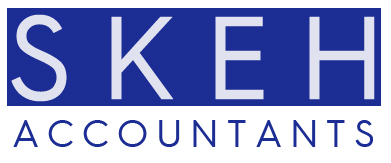
24 Jul How to find a good Accountant
Be sure to meet your accountant in person before engaging their services. You will be working closely together, so a personal connection is important.
Ask about their range of services to ensure that they can meet all your needs. This is also a good time to talk about their qualifications and experience. It is not a legal requirement for an accountant to hold any qualifications, but you should ensure that yours is qualified through one of the recognised UK bodies, e.g. ICAEW, ICAS, CIMA or ACCA. Also find out if they are a chartered accountant – chartered status is an internationally recognised level of professional standing.
Most accountants will display their certificates in their offices. You can also double-check by contacting the relevant organisation.
You should also discuss your accountant’s fees. An accountant’s job is to save you money overall (while protecting you from certain risks), so ask them to explain the ways in which their services will deliver value. How much you pay your accountant will depend on the extent of the services they provide you with. Your method of paying may also vary. Some services (such as annual accounts and bookkeeping) will involve a regular monthly fee, while others (such as tax planning advice) may be charged by the hour. The size of your business is also a factor, with larger businesses paying more.
Find out more about the costs of accounting services.
One-person band, small firm or larger firm?
Consider carefully if the size of your accounting firm is right for your needs. Broadly speaking, you should match like with like. Therefore, if you are a contractor or sole trader then a small firm will probably suit you best, but if you are a fast-growing startup with a big vision, you will be looking for a medium-sized firm to match.
Reviews, testimonials and reputation
Sites such as Google, Facebook and Trustpilot will let you see ratings and reviews for accounting firms listed there. Look for reviews by businesses of a similar size to yours – if the reviewer is much larger or smaller, their assessment may not be very helpful. An accountants should also have testimonials from their clients that they are willing to share with you.
Does the location of your accountant matter?
Technically it doesn’t matter too much where your accountant is based, since most of their work can be conducted remotely. However, regular face-to-face meetings are still valuable, and can be much more productive in terms of getting added value from your accountant. In a face-to-face meeting it is easier to discuss your business in broader terms and benefit from general business advice. Therefore, if you want more than basic accounting services, it’s good to be within easily travelling distance so your accountant can visit in person.
Questions to ask an accountant
1. What do you charge?
Fees are an obvious place to start. However, it’s important to weigh them against what services are included, and what value these might add.
2. What services are included in your fees?
Getting an itemised quote from your accountant will make it easier to compare them with other firms.
3. Why should I choose you rather than another accountant?
Most accounting firms will of course try to persuade you to choose them. But compare their various answers to this question to see who responds with something more than marketing spiel.
4. Will you assign a dedicated accountant / contact person to me?
Generally it is better to have one point of contact with your accounting firm, even if more than one accountant is involved in the work. This provides continuity, builds a relationship and reduces the risk of errors or missed deadlines.
5. How will we keep in touch?
A good accounting firm should be very rigorous about communicating with clients. Decide together how often is it necessary to communicate, and what forms this can take – e.g. face-to-face meetings, phone calls, video conferencing. The firm should be open to regular meetings even if there seems to be nothing particular to discuss, as issues may go unnoticed until raised in conversation.
6. What issues should we discuss regularly?
Following on from point 5, it is a good idea to get your accountant’s views on the matters that you should be considering on an ongoing basis. Issues might include financial reporting, tax planning, credit control and cash flow management.
7. Are there any special considerations for my type of business?
Asking this question will help you find out how much industry knowledge your accountant has, as well as being useful in itself. Ideally, you want an accountant with lots of experience of very similar types of business, so they are well versed in the risks and opportunities.
8. What additional services do you provide?
As your business grows, you may want to expand the range of services you receive from your accountants (e.g. funding for growth, R&D tax claims, . Find out in advance whether your chosen firm offers the necessary expertise, so you don’t have to move firms when you scale up. It’s also good to find out how your accountants will add value on a day-to-day basis.
9. What are the most common mistakes your clients make?
This is a good way to benefit from your accountant’s experience of similar businesses, so you can avoid those pitfalls. Conversely, if they don’t give you much of an answer, it could be that they don’t have the level of experience you’re looking for.
10. How will you make sure I don’t miss deadlines?
Helping you stay on the right side of HMRC is one of your accountant’s most important roles. An accountant who is on the ball will be ready and eager to remind you of all your obligations, rather than expect you to remember.
If you need help, just call us and we will take care of things for you.
Call SKEH Accountants Birmingham.
We are Tax Accountants in Birmingham.
Find us in Caroline St, Jewellery Quarter Birmingham

Sorry, the comment form is closed at this time.